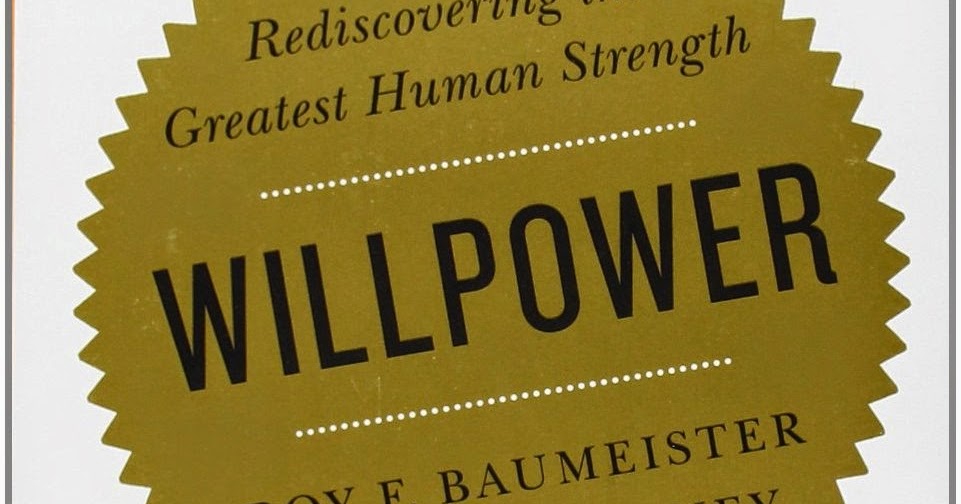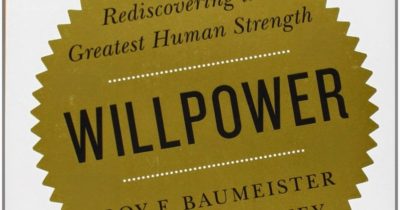Big up Big Brandon Carter for the recommendation.
Notes:
– Most common desire was to eat and sleep. Then sex.
– Carnegie’s Win Friends and Influence People book spent 8 pages on explaining to people how to have that winning smile. Passive bashing of similar books.
– Marshmallow experiment. Successful ones managed to distract themselves for 15 minutes to get another marshmallow. The ones that failed seemed to get in more trouble. The ones with more willpower had higher salaries, more points, better physical health, less issues with drug abuse, etc. So basically self-control in early age showed lots of good things.
– Amanda Palmer’s story of not breaking character by not drinking coffee and other practices for years. She only broke if a couple of times or so. 90 mins x 2 a day.
– Don’t think of a white bear and the monkey mind experiments. EEG experiments.
– Ago-depletion makes a big difference. Fatigue, tired, negative. Signal are things like reacting more sad to sad movies, ice cold water felt more painful, after eating one cookie there was a stronger craving. So look for a change in your feelings about these things. During withdrawal, the recovering addict is using so much willpower to break the habit that it’s likely to be a time of intense, prolonged ego depletion, and that very state will make the person feel the desire for the drug all the more strongly. It’s no wonder relapses are so common and addicts feel so weird when they quit.
– How during exams students would lose this ego. They’d increase their smoking, drinking, shopping, being messy etc. More coffee, less exercise.
– Beeper study: The more willpower expended, the more likely they were to yield to the next temptation. Cash rewards did boost willpower reserves but if it boosts it too much they get used up fast and don’t make it to the finish line if that makes sense.
– Two main points. 1 – You have a finite amount of willpower that becomes depleted as you use it. 2 – You use the same stock of willpower for all manner of tasks.
– 4 uses of willpower:
1 – Control of thoughts.
2 – Emotional control.
3 – Impulse control.
4 – Performance control.
– Focus on one project at a time! Don’t make a long list especially after new years! You will lose.
– Glucose and self-control are connected. Hypoglycaemia was connected to criminals and violent people or such activities. The food gets converted to glucose but does not get absorbed into the body. Surplus of glucose is like lots of firewood but no matches. If it’s high enough it’s known as diabetes. If students were given a healthy snack in the middle they’ll be less rambunctious. Dog experiment where sugar drinks restored their willpower.
– Women are less likely than men to suffer from lapses of self-control but are affected most during the luteal phase of their PMS cycle. It occurs after ovulation (when the ovaries release an egg) and before the period starts. But they are less likely to become criminals or addicts.
– Always eat well or have enough glucose before dealing with things that need willpower. Even sugar tablets have helped reduce the need for cigarettes. Eat foods with low glycemic index.
– Driving with a bad cold is worse than driving intoxicated. If your child has a cold before an SAT test… reschedule. When you’re tired sleep as you’ll end up with less self-control, do more unethical things, etc!
– Even God had to breakdown the creation of the world into daily tasks. But his list he finished and the final task was rest. Our lists keep growing.
– Set a clear goal. We set too many. There are 3 consequences of existing goals.
a) Worrying a lot, over thinking.
b) Get less done, procrastination.
c) Health is affected. More physical, mental issues and anxiety.
– Experiments of people with self-control and addicts. Fast reward, their long term stories were just 9 days compared to 4 years of folks with better self-control. Ignoring long-term goals are not good both physically and fiscally.
– Debate of which is better Proximal/Short term goals vs. Distal/Long term goals.
– Monthly planning/goal setting is best. Daily is time consuming, lacks flexibility and with so many changes everyday it can get frustrating.
– How Drew Carey called up Dave Allen author of Getting Things Done: The Art of Stress-Free Productivity and hired his services … because he’s rich! Dave’s desk is complete absence of paperwork. Even the trays especially the inbox. Done, delegated, dropped or differed. I will be going through this book soon so you can read the notes there. Just do a search or click if the link is available.
– Zeigarnik Effect: Incomplete tasks and goals continue to pop in ones mind. Funny enough if you stop a song halfway your mind keeps thinking of it like it’s an incomplete task. So that’s why it’s stuck in my head! Which is why bad songs get stuck in our head. (Last song syndrome)
– Grrrr. These books and their this study showed this but then that study negated it with this experiment and that experiment hypothesised … JUST GET TO THE POINT! Rant over. I’ll skip over the countless experiments mentioned.
– Mess is good but one mess at a time. Even if it’s getting cat food put it on a list!
– Marathon shopping depletes willpower. Bridal registry helps because it’s registered and things are in order.
– If you have a court case and it’s later in the day … bad news. Judges willpower and decision making will be depleted.
– When you have too much choice you get too picky and wait for something better. Shopping is the opposite, you deplete quickly so sellers market big things first and then towards the end save the impulse buys. How males lose their sense of priority and money when it comes to women.
– Self-awareness also plays a big part. Experiment where kids took more than one Halloween candy when the mirror was not facing them. People getting drunk to do all sorts of stupid things. 2 Step to improve this is 1. Setting a goal and 2. Monitoring your behaviour.
– Public info is also more important which is why all these fitness apps work so well.
– David Blaine’s doing all sorts of weird things so that he became an endurance artist.
– Sitting in good posture and upright helped lots of things.
– Many lefties are fairly ambidextrous.
– Exercises are like using proper words instead of yeah, nah and swearing. Exercise resisting to say them will grow the muscle.
– Exercise increases mental stamina and improved other aspects of life like studies, saving, less smoking and drinking, more chores, less junk food. Even though sometimes working out would mean eating more junk food.
– For men ‘oh heat’, will power is really low. This is where BBC (Big Brandon Carter of YouTube fame) talked about how he masturbates before making choices or how he recommended doing that when you start acting crazy.
– Use pre-commitment to stop you from getting into the bad habits. Making cash punishments help a lot and the more the money the more the success.
– Self-forgetfulness is another technique like how nurses distract you with other stuff and avoid using pain words.
– Talks about how prayer worked for non-believing Eric Clapton and Mary Karr. Sri Sri Ravi Shankar has also talked about how to make thing sacred so you honour it more.
– Teenagers risk a hell of a lot to get social acceptance and do it in a cool way.
– The ones who were better at getting support from other people ended up abstaining more frequently and doing less overall drinking. The barbecue law is where you drink with your mates and risk offending people if not, so alcoholics need the same kind of peer pressure in reverse. Religious people are less likely to get into the bad things and misfortunes come to them.
– Bright Lines: These are clear, simple, unambiguous rules. And if you believe that the rule is sacred—a commandment from God, the unquestionable law of a higher power—then it becomes an especially bright line.
– Self-esteem: Grades in 10th grade predicted self-esteem in 12th grade but not vice-versa.
– Narcissists: They need adulation and admiration but don’t require to be liked. Good first impressions but don’t wear well. They are everyone’s favourite person but only during the first few meetings and then slip to the bottom of the rankings. Recently it has risen with USA youth and even their songs full of I and me. (Paras note: One of the reasons I got bored of hip-hop). The exception is in Asian where it doesn’t show up because of good discipline and self-control.
– Confucian concepts of chiao shun, which means “to train,” and guan, which means both “to govern” and “to love.” Chinese parents have two things over their Western counterparts:
(1) higher dreams for their children, and
(2) higher regard for their children in the sense of knowing how much they can take. Chua’s basic strategies—set clear goals, enforce rules, punish failure, reward excellence.
– The punishment has to be closer to the incident! A relaxed but stern word or two would be the best way to go. Don’t ‘let this one go’ too much or too early.
– Ferber method, or Ferberization, is a technique invented by Dr. Richard Ferber to solve infant sleep problems. It involves “baby-training” children to self-soothe by allowing the child to cry for a predetermined amount of time before receiving external comfort. In this method both child and adult are happier in the long term. Children need and want clear rules and they need to know and understand them. Asking them what goals they have is good too as you can direct them accordingly.
– Money for grades is controversial but it works in the long term. Society will be doing it to them in future anyway.
– Children raised by single parents tend not to do as well in life as children who grow up with two parents. A lack of adult supervision during the teenage years turned out to be one of the strongest predictors of criminal behaviour. When parents keep tabs on where their children are, what they do, and whom they associate with, the children are much less likely to use illegal drugs than when parents keep fewer close tabs. Anything that forces children to exercise their self-control muscle can be helpful: taking music lessons, memorizing poems, saying prayers, minding their table manners, avoiding the use of profanity, writing thank-you notes.
– Most children aren’t being hurt by playing video games, and that they can derive some of the same benefits from the games as from practicing music, playing sports, or pursuing other passions that require discipline. Earn respect through their accomplishments. To acquire skills, they fail over and over.
– 3 Discipline to lose weight:
1. Never go on a diet.
2. Never vow to give up chocolate or any other food.
3. Whether you’re judging yourself or judging others, never equate being overweight with having weak willpower.
– It’s better to make gradual changes because intense diets makes the body hold on to fat thinking there is a famine.
– Conter-regulatory eating: Dieters have a fixed target in mind for their maximum daily calories, and when they exceed it for some unexpected reason, they regard their diet as blown for the day.
– Trying to hide your feelings while watching a movie drains your willpower, rendering you more likely to overeat later on in a separate, ostensibly unrelated context.
– Nutritional catch-22: 1. In order not to eat, a dieter needs willpower. 2. In order to have willpower, a dieter needs to eat.
– Plan for battle in losing weight: Things like not keeping sweets out and visible, brushing teeth early before bed to stop from late night snacking. Using techniques like ‘if this, then that’. There is a connection with obese people clustering together like the story of how Oprah lost her overweight friends when she lost her weight. Weighing yourself everyday helps more than weekly. Prisoners gain more weight because they don’t wear tight fitting clothes or belts so they can’t gauge it. Eating in front of the TV encourages snacking as you’re not paying attention. It’s better saying I’ll eat it later instead of never.
– Procrastination: They are healthier overall but the closer they reach the deadline the more health issues they had so it cancels out!
– See last chapter title under Conclusion. Willpower 101 for a quick summary.
– The Planning fallacy: Late and over budget is the norm.
Contents
Introduction
The Decline of the Will
The Comeback of the Will
Evolution and Etiquette
Why Will Yourself to Read This?
1. Is willpower more than a metaphor?
The Radish Experiment
Name That Feeling
The Mystery of the Dirty Socks
Lessons from the Street and the Lab
2. Where does the power in willpower come from?
Brain Fuel
Inner Demons
Eat Your Way to Willpower
3. A brief history of the to-do list, from god to Drew Carey
Which Goals?
Fuzzy Versus Fussy
Drew Carey’s Dream In-Box
The Zeigarnik Effect
Zero Euphoria
4. Decision fatigue
Crossing the Rubicon
The Judge’s Dilemma (and the Prisoner’s Distress)
LazyChoices
Choose Your Prize
5. Where have all the dollars gone? The quantified self knows
I’m Self-aware, Therefore I . . . ?
The Quantified Self
Not-So-Invidious Comparisons
6. Can willpower be strengthened? (Preferably without feeling David Blaine’s pain)
Willpower Workouts
From Strength to More Strength
The Toughest Stunt of All
7. Outsmarting yourself in the heart of darkness
The Empathy Gap
The Ties That Bind
The Brain on Autopilot
But Enough About Me
8. Did a higher power help Eric Clapton and Mary Karr stop drinking?
The Mystery of AA
Heaven (like Hell) Is Other People
Sacred Self-control
Bright Lines
9. Raising strong children: self-esteem vs. self-control
From Self-esteem to Narcissism
Exceptional Asians
Nanny Deb and the Triplets
Rules for Babies and Vampires
Wandering Eyes
Playing to Win
10. The perfect storm of dieting
The What-the-Hell Effect
The Dieter’s Catch-22
Planning for Battle
Let Me Count the Weighs (and the Calories)
Never Say Never
Conclusion : The future of willpower: more gain, less strain (as long as you don’t procrastinate
The Deadline Test
Willpower 101, First Lesson: Know Your Limits
Watch for Symptoms
Pick Your Battles
Make a To-Do List—or at Least a To-Don’t List
Beware the Planning Fallacy
Don’t Forget the Basics (like Changing Your Socks)
The Power of Positive Procrastination
The Nothing Alternative (and Other Tricks of Offense)
Keep Track
Reward Often
The Future of Self-control
Amazon #ads






